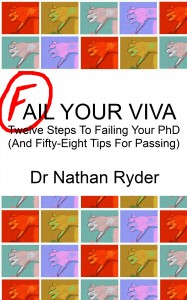Solo Preparation
If your supervisor is busy or you don’t have a good relationship with them then you can still prepare for your viva. You don’t need them – or anyone else – to help you read your thesis, or annotate it, or check the regulations, or do many of the other valuable things you might do as part of your prep.
But a supervisor is uniquely placed to offer some useful help: feedback on your progress over the years and perhaps a mock viva. You could be prepared for the viva without these things, but they do help.
If you think you need these sorts of things but your supervisor isn’t the person to help you, then think about who else is in your circle. Colleagues, friends, and so on – who could help? Even if they can’t do exactly what your supervisor could, think about what they could offer.
Like the rest of the PhD, you’ll do most of the preparation for your viva by yourself – but you are not alone.
